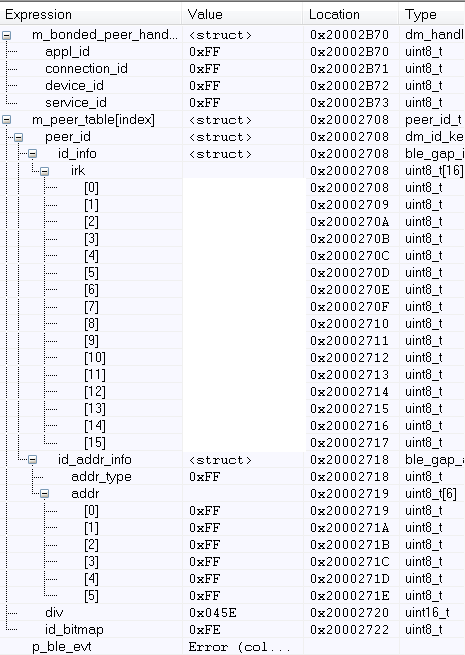-
Custom Board with MCU NordicSemi nRF51822-QFAA
-
Softdevice S110 7.1
-
IAR for ARM 7.1
-
SDK 7.2 using a merged service (HID keyboard example + NUS example + HRS example)
-
Testing with iPhone 5S, 6 and iPad air (iOS 8.1.3)
/ Nexus 5 and Galaxy Note 3 (Android 4.4.2).
/******************************************************************************************************************/
For example, my test device iPhone 5S 's address is 80:EA:96:FF:FF:FF.
(Is this address called MAC address? When I sniff with Wireshark, the source's address
appears like this.

Anyway...)
Whereas my peripheral's address is EE:37:83:DD:DD:DD.
Previously on my question "HID Keyboard - Problems After Disconneting and Downloading" ,
when I press "Forget the device", the iPhone erases the bonding info, however,
the peripheral still leaves the phones info in the flash memory.
So I want to check each devices address and if I detect a same address, I want to delete that
bonding info block.
/******************************************************************************************************************/
Back to the question,
where can I check the bonded device's address?

I tried to check these variables, but nothing seems to change except the index.
Where is the central's address?
+) Plus, is that address really called MAC address?
Also, is this address becomes stored into the peripheral's flash?
-Regards, Mango922

